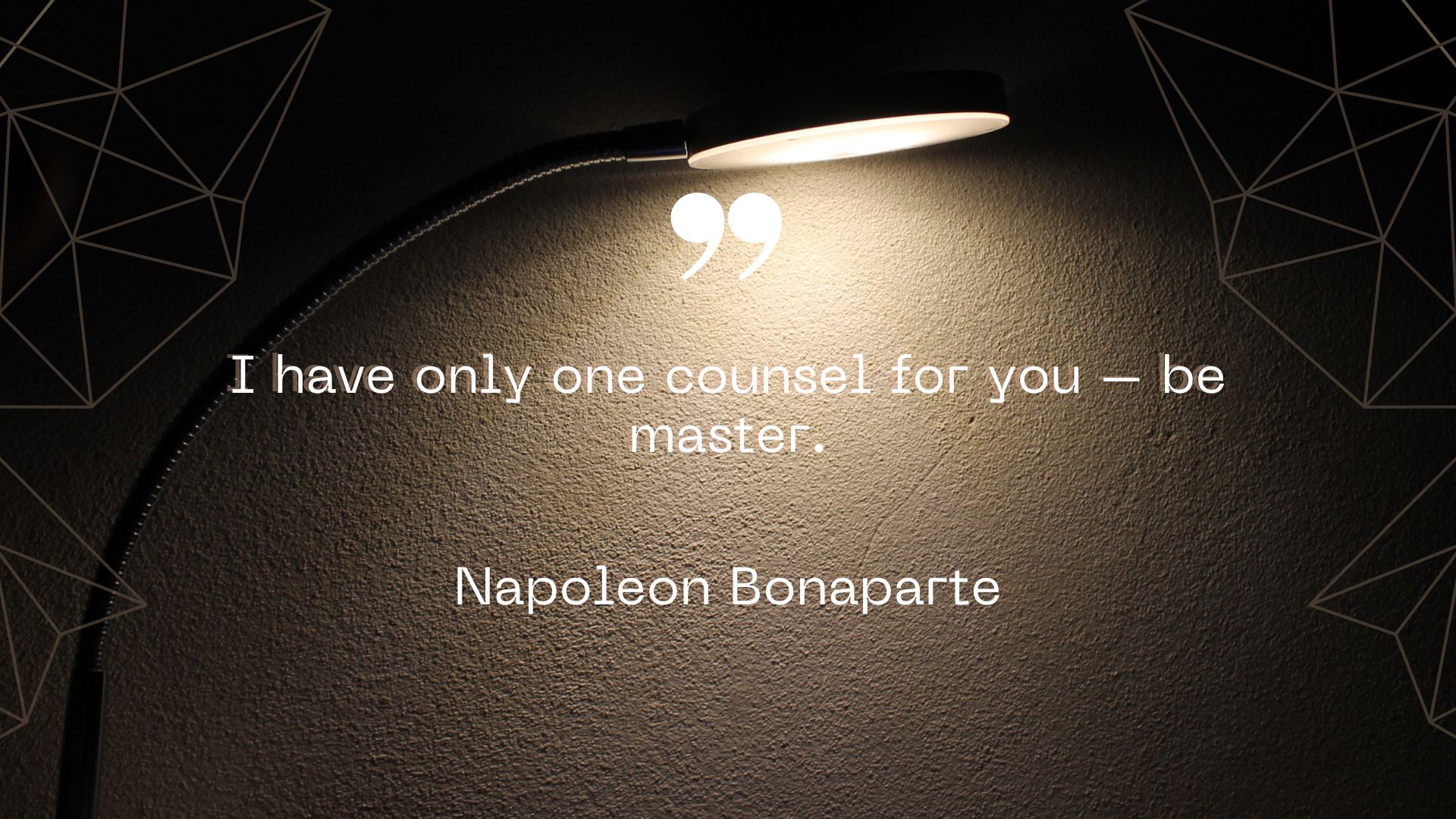I have only one counsel for you – be master.
Napoleon Bonaparte
“I have only one counsel for you – be master” is a quote that is often attributed to Napoleon Bonaparte, who was a French statesman and military leader during the late 18th and early 19th centuries. The quote suggests that the key to success is to take control of one’s own life and circumstances and to be the master of one’s own fate. It is a powerful message of self-determination and the importance of taking charge of one’s own life.
Self-determination
Self-determination is the ability to make decisions and choices for oneself, and to act on them freely and independently. It is an important aspect of personal autonomy and self-governance, and is often associated with the idea of self-agency or the capacity to act in accordance with one’s own will.
Self-determination is a fundamental human right recognized by international law, and is considered essential for the realization of other human rights. It is also an important aspect of psychological well-being, as it allows individuals to shape their own lives and pursue their own goals and aspirations.
There are many factors that can impact an individual’s ability to exercise self-determination, including social, cultural, and economic conditions, as well as personal characteristics such as self-esteem and self-efficacy. It is important for individuals to have the opportunity and the resources to make decisions and choices that align with their own values and goals, in order to live a fulfilling and meaningful life.
Make decisions
Making decisions is an essential part of life and is something that we do on a daily basis. Decisions can range from small, routine choices to larger, more significant ones that can have a major impact on our lives.
There are many factors that can influence our decision-making process, including our values, goals, knowledge, and experiences. It is important to carefully consider the options available to us and to think about the potential consequences of each choice before making a decision.
Effective decision-making involves a number of steps, including:
- Defining the problem: Clearly defining the problem or issue that needs to be addressed is the first step in the decision-making process.
- Gathering information: Gather all the relevant information and data that will help you make an informed decision.
- Evaluating options: Consider all the possible options and weigh the pros and cons of each one.
- Making a decision: Based on the information and options available, choose the option that is most likely to achieve your desired outcome.
- Implementing the decision: Put your decision into action and follow through with any necessary steps to ensure its success.
It is important to be mindful of the decision-making process and to approach it in a systematic and thoughtful manner, in order to make the best possible choices for ourselves and those around us.




